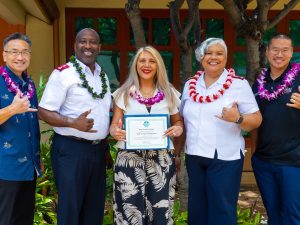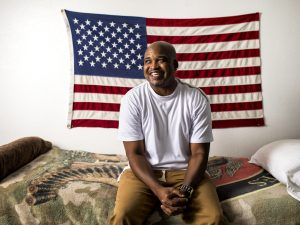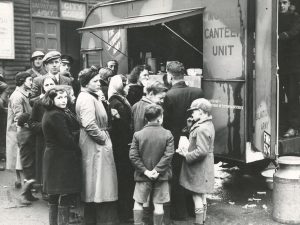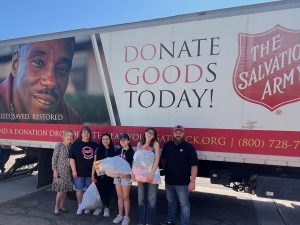Yes, The Salvation Army does a lot.
And notably, we don’t do it alone.
Thanks to generous donors and a long list of corporate partners, The Salvation Army is dedicated to Doing the Most Good.
Since 1865, we have been working to provide sustainable solutions for the most vulnerable. We stay not just until the job is done, but long afterward to ensure that the healing continues. With 82 cents of every dollar dedicated to directly supporting the needs of the community in which it was given, The Salvation Army is committed to stewarding every donation with integrity.
In fact, it’s because of people like you that The Salvation Army can serve more than 31 million Americans in need each year. (That’s almost one person every second, every day.)
Your gift helps The Salvation Army Fight for Good all year in your community. Meet a few of those who’ve partnered with us to give the world a lasting display of the love behind our beliefs.
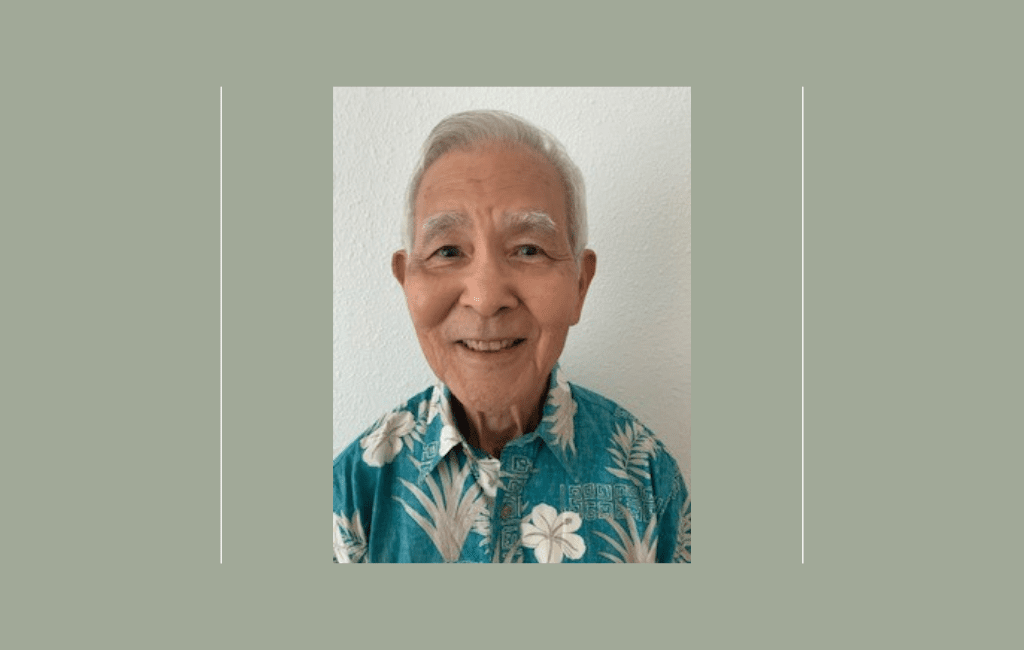
RALPH OSHIRO
Scholarship and endowment donor
Ralph Oshiro credits The Salvation Army Camp Homelani, on the North Shore of Oahu, with transforming his life. As a teen, Oshiro didn’t take school or life seriously. He said he spent many days “just cruising around, playing around,” instead of attending classes. Eventually, he dropped out.
His band teacher must have sensed something in Oshiro, because he gave him a scholarship to attend Camp Homelani.
“It was a special place,” Oshiro said. “It gave me a new outlook on life. For me it was totally life-changing, from an aimless youth to one who had an important goal to fulfill.”
The experience inspired him to get his GED. He went to college and became a music instructor.
He first gave $10 to The Salvation Army in 1995 and has made 32 gifts in the years since.
Oshiro said the person who influenced him the most at band camp was the late Harry Stillwell, well known in The Salvation Army for his trumpet expertise and his Christian witness. Oshiro asked Stillwell if he could sponsor camp scholarships under Stillwell’s name.
Today, Oshiro’s gifts allow youth—those whose families might not otherwise be able to afford it—to attend camp each year.
He expressed gratitude for the life he’s led since that first camp experience.
“It is all because of God’s amazing grace, and it started here at Camp Homelani,” he said. “There’s something for every camper that comes—something that will ignite a spark in them. They’ll change their lives.”
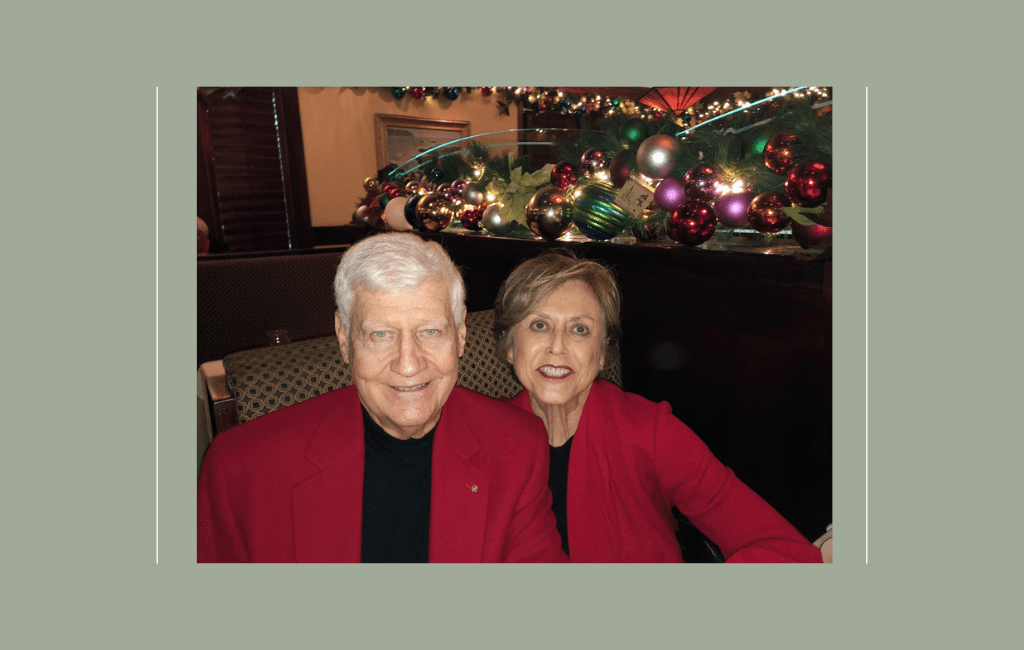
DIANE AND JOHN MULLIN
Capital Campaign Naming and Bequest donors
When Diane and John Mullin first began bellringing for The Salvation Army in 1993, they couldn’t have imagined where they’d end up today. With their recent, sizable gift to the Army’s Hope Center project in Pasadena, California, they’ve become more than just generous philanthropists; their names will now forever be associated with the possibility of hope and opportunity for generations to come.
With a population of just over 141,000, Pasadena has one of the highest income inequality values in the Greater Los Angeles Area with an estimated 22,000 residents living in poverty.
One evening several months ago, they were confronted with the crisis head-on. After a visit to Keck Hospital, they walked down nearby Huntington Drive and noticed an even larger than usual tent encampment with a total of 47 tents altogether—and many of them with toys inside.
“We decided that very night to put everything into one charity where it could do the most good,” Diane Mullin said. “Right now, we do have an extreme homeless problem in the City of Los Angeles, in Pasadena, everywhere. And with this COVID situation, it’s even larger. It’s really tough.”
The 52,000 square-foot center—the Diane and John Mullin Hope Center—will support many of those low-income families and veterans in the Greater Pasadena community who have found themselves struggling due to the pandemic. It will be a destination for Pasadena children, families, seniors and veterans to receive the compassionate care they need and deserve—including 65 affordable permanent supportive housing units on the three floors above the social services center. Residents will be asked to contribute 30 percent of their income toward rent and will be provided with ongoing supportive services throughout their tenancy.
The Salvation Army broke ground on the project in October 2021, intending it to be a “‘one-stop-shop’ center of hope” for the community. The centerpiece of the new four-story facility will be the converted client choice pantry, which will allow clients to select their own food and will help accommodate seniors and those with dietary restrictions.
Mullin, a chef and baker by trade, knows firsthand how important a good meal can be during challenging times.
“I come from a Latin background,” she said. “My family was from Spain, my grandmother was from Mexico City, and my grandfather was from Germany, so I grew up in a big family where my grandmother and my parents were always making something and getting it to people who needed it.”
When she started her bustling bakery business from home as she coped with debilitating rheumatoid arthritis symptoms years ago, she thought of learning to cook and bake as a survival skill—and aimed to share it with others by hiring and mentoring those who needed a fresh start. While John grew his lumber and development business, she taught chef training classes at night at LA Trade Technical College. Eventually, they opened a bakery plant in Glendale and served major customers, such as Trader Joe’s.
Likewise, when the Hope Center opens in 2022, Mullin hopes to be able to be on-site to help facilitate some of the cooking classes for the new residents. Mullin said she’s hopeful that others in Los Angeles and elsewhere might be inspired by The Salvation Army’s holistic approach to solving the homelessness crisis—and might especially be moved to help support children in need. The Mullins want others to receive the same blessing they have from supporting The Salvation Army and often encourage their neighbors and friends to give and volunteer at their local The Salvation Army.
“I’ve never met a group of such selfless people that are working to help others,” she said. “The Army’s goal is to take people in and rehabilitate them so they can have a life and be able to take care of themselves. And that’s something that’s really important to me.”
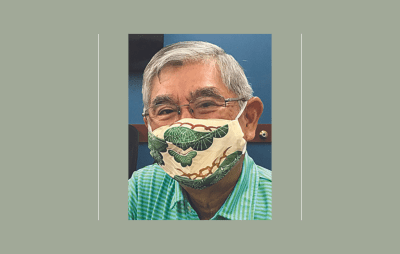
WALLY TSUHA
Cryptocurrency donor
In the midst of unprecedented need and fundraising challenges, The Salvation Army turned to cryptocurrency, launching its first-ever crypto kettle in the Western U.S. in December 2020 that allows donors to donate cryptocurrencies Bitcoin and Ethereum directly to The Salvation Army. The transactions are as easy as making an online credit card transaction, and come with a receipt and, perhaps most importantly, tax benefits.
And it didn’t take long to hear the digital coin clang as Wally Tsuha became the first to donate two Bitcoin—valued at more than $46,000—in Honolulu Dec. 23, 2020.
Tsuha grew up with seven siblings in Kalihi and remembers “when The Salvation Army brought the baskets of food and some clothing and some toys,” he told Hawaii News Now at the time of his gift. Now, after a successful career as an executive in the automotive electronics industry and starting his own corporation, Tsuha urged others to give cryptocurrency, too.
“It is a great cause and they need the money,” he told the publication. “I think everyone knows also that The Salvation Army does not turn anyone away.”
By adding an option to donate cryptocurrency, The Salvation Army joins a small section of nonprofits that accept this form of donation. Only about 2 percent of charities in North America, Europe and Australia accept this form of donation, according to Nonprofit Tech for Good’s 2019 Global NGO Technology Report.
The Salvation Army in the Western U.S. partnered with Engiven, a service that works with nonprofits to securely accept and liquidate cryptocurrency donations.
By donating cryptocurrency directly to The Salvation Army, donors, when advised by a tax professional, can reap the tax benefits of not paying a capital gains tax that typically comes with cashing out cryptocurrency, along with getting a tax write-off for the amount donated.
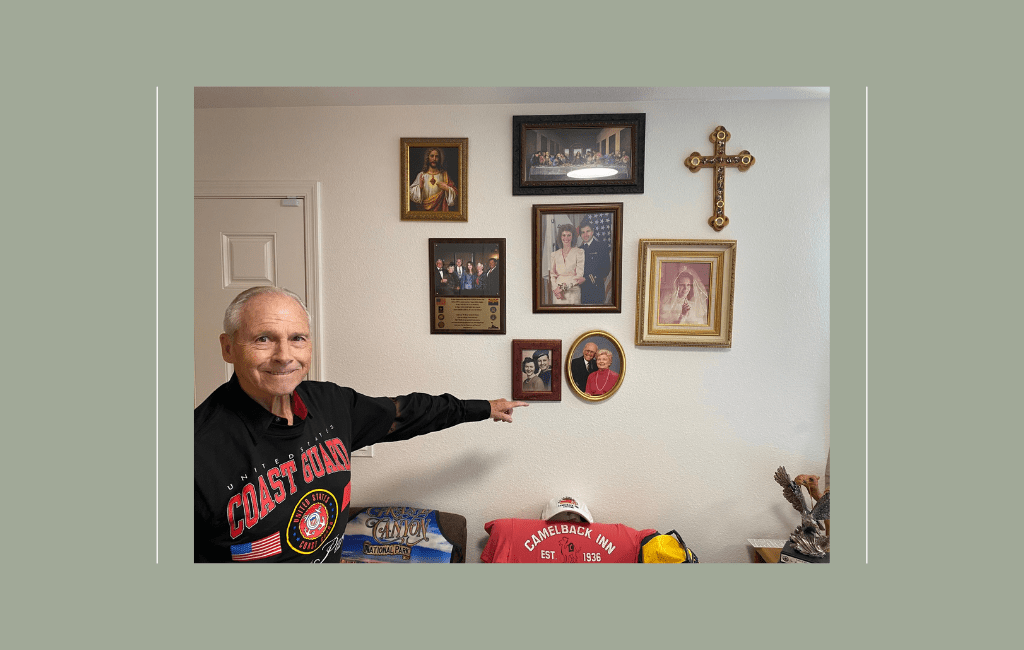
DAN GERMOND
Real estate donor
Dan Germond has been a friend to The Salvation Army for many years, offering both financial support that goes back to his first gift in 1992 and volunteering his time through service on the Glendale (Arizona) Advisory Board.
He established a Charitable Remainder Trust in excess of $100,000 in 2018, funded with a gift of his office building. As a result, Germond will receive an income during his lifetime. He later set up a Retained Life Estate in excess of $400,000 with a gift of his personal home, retaining the right to live in it for the rest of his life.
“My [late] wife, Lynda Lee (Barrett) Germond, had a special place in her heart for the work of The Salvation Army and reminded me to keep up the good work and continue supporting the Army,” Germond said.
The Germonds’ love of philanthropy and desire to improve their communities were nurtured at home during their formative years. Both the Barrett and Germond families were business and community leaders who demonstrated faith and were active in their respective churches.
Eventually, Germond founded an organization called Revere America, dedicated to honoring the memories of their parents and his wife. Revere America has also supported The Salvation Army and other charitable organizations. Love of country, faith in God and the honoring of marriage are the hallmarks of Revere America and Germond’s philosophy.
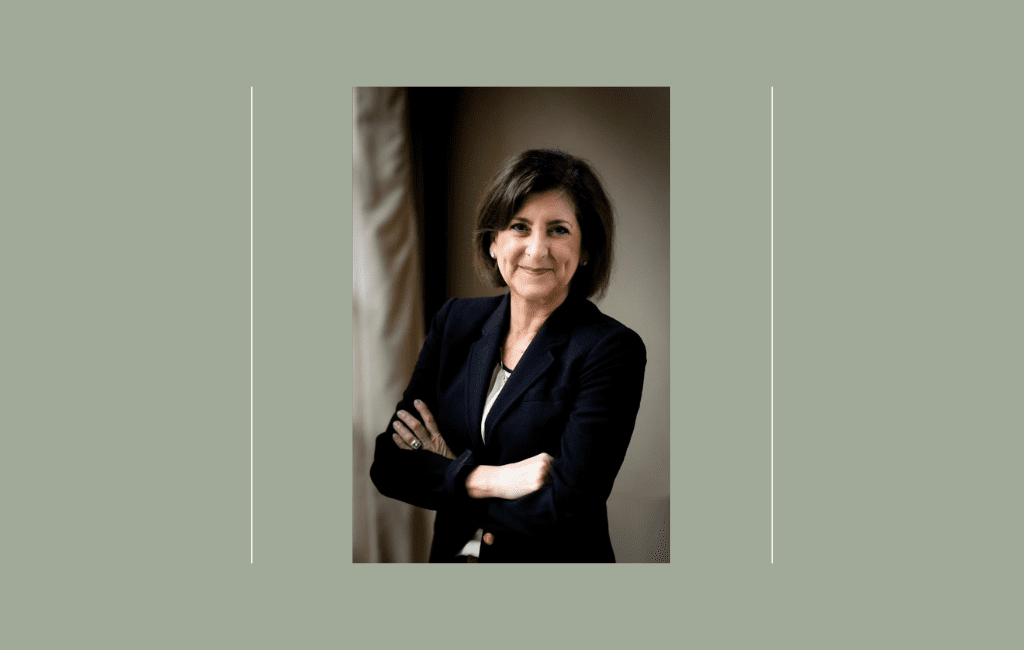
ANGELA KRABLIN
Volunteer and cash donor
Angela Krablin spends her days as Senior VP of Bank Operations at Montecito Bank in Santa Barbara, California. In her spare time, she serves as a volunteer member of The Salvation Army Santa Barbara Advisory Board, supporting the local work as board chairperson for the past 11 years. She also enjoys making donations to the organization.
She first met the Army while looking for assistance for a family member in addiction and discovered a Salvation Army Adult Rehabilitation Center (ARC) nearby. Every year, The Salvation Army equips more than 150,000 people across the U.S. to combat addiction, regain health and stability, build work and social skills and restore families in more than 130 residential treatment facilities.
“I was so impressed with the program that I joined the ARC board and started donating to the program,” Krablin said. “Once I became familiar with the organization, I was impressed with the fiscal responsibility and the dedication to the work they were doing. I felt the difference immediately, having been involved in so many local and national organizations.
A recipient of the Paul Harris Fellow Award from the Rotary Club, Krablin found The Salvation Army team experienced.
“It was so refreshing how honest, earnest, humble and effective the organization was,” she said. “They struck me as the real deal—doing the right things, the right way, for the right reasons. I also liked that The Salvation Army is a Christian organization as that fits with my own beliefs. The more I got involved I knew that they were trustworthy and good.”
Now she often talks about The Salvation Army
“I am proud to be affiliated with this organization,” she said. “The Army is a well-respected, legitimate organization and my involvement is part of my identity.
What does she tell potential donors?
“Your dollars are safe with The Salvation Army, and you will always know how they use your donations,” she said. “A donation to The Salvation Army contributes to the longevity of an organization that knows what they are doing, how to do it, and who do it well. Nothing is more important to me.”
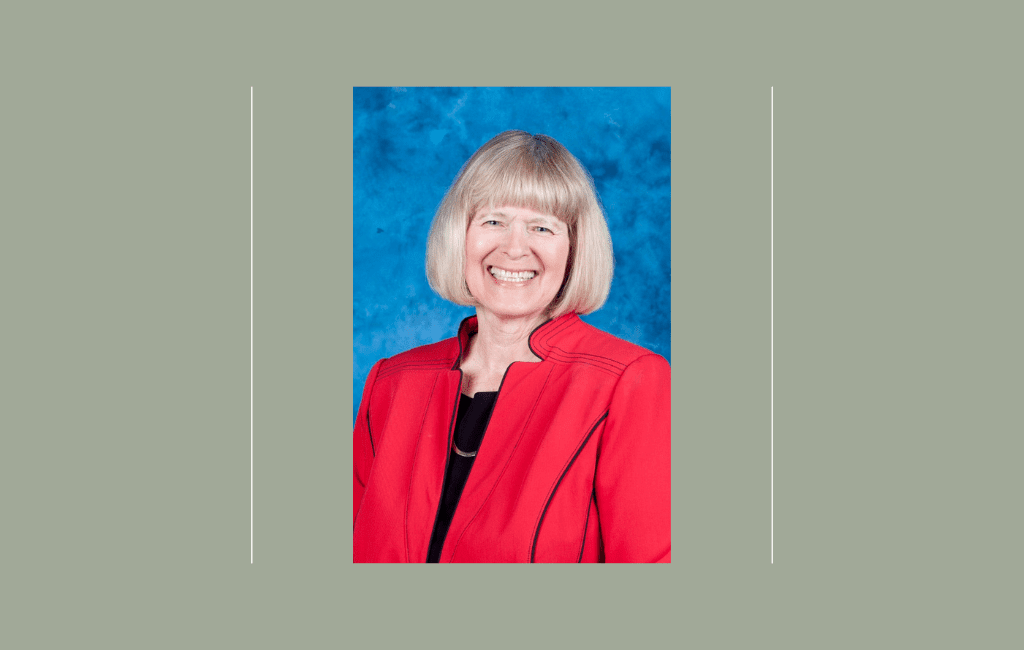
JENNY EDWARDS
Monthly cash donor
Monthly giver Jenny Edwards has a passion for doing good. As an educator, she has helped both children and adults reach their potential. Currently, she mentors doctoral students at Fielding Graduate University. As a therapist and life coach she has assisted clients worldwide in healing from trauma and releasing negative thought patterns. Her driving force aligns with The Salvation Army’s mission to help others, and her cash donations support the Army’s promise of “Doing the Most Good.”
Edwards’ connection with The Salvation Army began with her late husband, Bo Edwards, an attorney who could trace his ancestry back to William Booth. Inspired by this connection with The Salvation Army’s founder, he and his wife began supporting the Army’s efforts to help others through regular cash donations. They gave their first gift to the Army in 1987; to date; they have given 163 gifts. Today, Edwards continues the tradition of giving to support the Army’s mission.
“I continue to honor Bo by giving to the organizations to which he donated…Those in my husband’s family were always strong Christians, kind and loving, who served the Lord and did good in the community,” Edwards said.
Edwards is currently writing two books: one on how parents can use language to instill a positive self-image in their children, and the other on how people first came to know Christ and how they live the Christian life. She feels confident giving to The Salvation Army, knowing the money will support those who most need it.
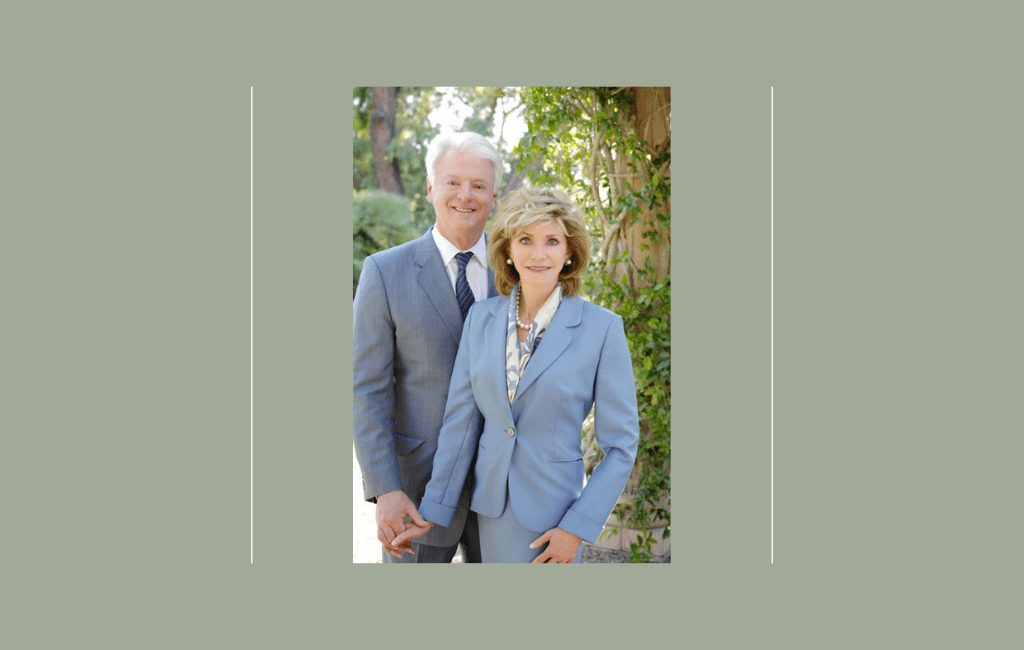
BILL AND SUSAN HOEHN
Creative donors
Bill and Susan Hoehn of Hoehn Motors in Carlsbad, California, are long-time volunteers, fundraisers and donors to The Salvation Army.
As successful business owners with seven dealerships across Carlsbad, the Hoehns have given The Salvation Army several vehicles over the years—yet their support goes far beyond.
Susan Hoehn recalled their first time volunteering with The Salvation Army at a Christmas toy distribution when their three children were young. “It was just this fabulous feeling of being able to give to people personally,” she said.
Bill Hoehn said early on he became aware of The Salvation Army’s ministry and was impressed with its “wholehearted dedication” to the faith.
He said The Salvation Army stood out among other organizations for its appeal to, and admiration from, non-Christians while still maintaining a commitment to spreading the Gospel in Jesus’ name without discrimination.
The Salvation Army’s Door of Hope in San Diego, California, holds a special place in the Hoehns’ hearts. After Bill Hoehn’s mother, Betty Jo Hoehn, died in the 1990s, the family donated a playground to the residence facility in her honor.
Door of Hope consists of shelters for families and women with children experiencing homelessness as well as programming aimed to help secure permanent housing and heal from domestic abuse.
The couple later gave a new Honda Odyssey, dubbed “The Van of Hope,” in 2020.
For many residents of the transitional and interim housing units, transportation is a barrier to everyday life. The donated van helps to transport residents to get groceries, medical supplies, and eventually to transport them to apartments in order to meet landlords and apply for residence.
“I really like what they do and how they do it,” Susan Hoehn said.
While the Hoehns support a number of Christain organizations, both nationally and internationally—over the last few years, the Hoehns said they have become more committed to The Salvation Army’s mission and work.
Bill Hoehn said he appreciates the Army’s ability to “operate in integrity” while abstaining from “scandal or financial impropriety.” Susan Hoehn added,“This is an organization that you can trust. I’m really happy that I can feel confident about what they’re doing.”
She stays involved through her position on the strategic planning committee for The Salvation Army’s Rady Residence in downtown San Diego. “We know the people and we are in the trenches with them,” she said. “Genuine people that work there with very honest and sincere and successful programs.
“We’re investing in people’s lives in the best way,” Susan Hoehn said. “For them to have a new beginning and a better life with Christian influences…That’s just all the reward I need.”
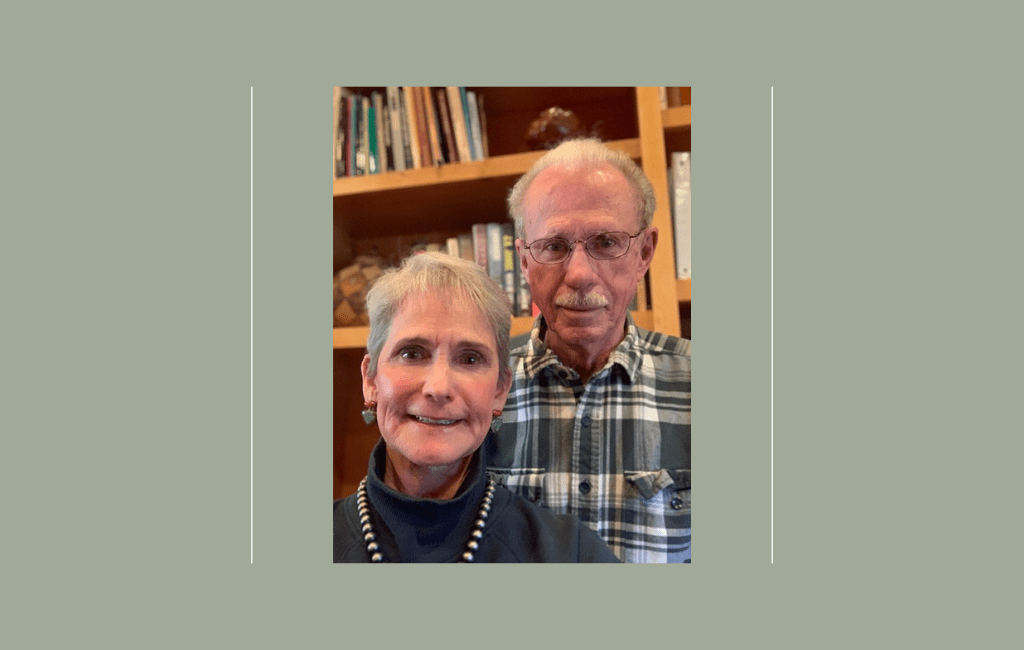
ANNE AND JOHN DRAPER | Capital Campaign donors
MIKE MILLS | Family Foundation donor
Anne and John Draper knew about The Salvation Army—they had given to the organization over the years—but they didn’t fully know all the Army did in the metro Denver area until they attended a brunch with neighbors some four years ago. The chairperson for the local advisory board was there, and shared how he was involved with The Salvation Army, why and all the good it was doing.
“That’s when we first learned The Salvation Army is more than ringing bells at Christmas and a shelter for people downtown,” Anne Draper said. They later toured Army programs in the Denver area and learned more about the breadth of Salvation Army assistance to more than 30 million Americans a year.
“We give to various nonprofit organizations across the country, but we realized The Salvation Army does a lot for people where we live and that was important,” Draper said. “We wanted to give to help closer to home, too.”
And they have, including pledging support with a $100,000 gift to the Army’s capital campaign for a new family housing center, corps and headquarters in the Denver Metro area.
“The more we’ve learned about The Salvation Army, the more we appreciate,” Draper said. “We like that The Salvation Army works with a lot of other nonprofits. We feel like money we give is not wasted; it’s being spent wisely in working with others.”
As they became more involved, John Draper asked Army leadership why they “don’t toot their horn” more often and volunteered to help tell others about all the good the organization does.
“The Army really does the most good,” he said. “We believe that.”
So the Drapers decided to hold their own social gathering in September 2021 and invited 30 neighbors and friends to their home in Littleton, Colorado, to hear more about The Salvation Army’s current work and needs.

One of those friends, Mike Mills, said he was moved when he learned how The Salvation Army supports youth in Denver. For nearly 30 years, Mills has been involved with Metro Denver Crime Stoppers, serving as its board president for the last 16 years, and in 2020, established the Clay Connections Foundation to break biases between underserved youth and law enforcement through outdoor activity. He saw an opportunity for a natural partnership with The Salvation Army.
Mills later toured the Denver Red Shield, attended a Camp Donor Day and invited Salvation Army leadership to visit the grounds of his foundation.
“It’s nice to really find out—instead of just giving money—to know how the money is being spent,” he said. “To know the people running the programs and see how passionate they are about their mission.”
Mills funded a $50,000 grant from his family foundation, the Ronald and Carol Moore Family Foundation, to support Salvation Army youth programs in Denver.
“Without good people dedicating their lives to serving none of this is possible,” he said. “I’m only one piece of it—I’ve been fortunate and now it’s my opportunity and good fortune to give back.”
And now, like the Drapers, Mills tells others about the wide array of Salvation Army services, too.
“We do not give for any type of recognition; that’s not who we are,” said Anne Draper. “When you see the good that happens you just feel better—maybe we’ve made a little bit of difference.”
How can you partner with The Salvation Army?
You can join donors like these in the Fight for Good and make an impact with The Salvation Army. Consider how you could give using this gift planning guide:
Outright Gifts
Cash
Write a check or use a credit card. Easy to make; qualifies for an income tax charitable deduction for full amount of gift.
Securities
Transfer to The Salvation Army an appreciated asset (stocks, bonds) held for more than one year. Qualifies for an income tax charitable deduction for full fair market value; no capital gains tax payable on asset’s appreciated value.
Closely Held Stock
Business owner gives stock to The Salvation Army, then the corporation may repurchase the same stock. The fair market value of the stock qualifies for a charitable deduction; no capital gains tax.
Tangible Personal Property
Donate property to The Salvation Army. Income tax charitable deduction for full fair market value if gift property used by The Salvation Army for its exempt purposes (otherwise, deduction limited to adjusted cost basis). Qualified appraisals are often necessary.
Life Income Plans
Charitable Gift Annuity
Assets (usually cash or securities) donated to The Salvation Army in exchange for fixed annuity payments. The gift portion of the donation qualifies for an income tax charitable deduction; part of payments may be tax-free return of principal; capital gains tax on the transfer is spread over the donor’s life expectancy if donor is the annuitant.
Charitable Remainder Annuity Trust (CRAT)
Set up trust that pays specific annual benefit for life of beneficiary(ies), or for a period up to 20 years; trust property transferred to The Salvation Army when benefits end; usually funded with cash or securities. Qualifies for an income tax charitable deduction; possibly avoids capital gains when funded with long-term appreciated property.
Charitable Remainder Unitrust (CRUT)
Similar to CRAT, except income amount varies each year as trust assets are revalued; may be funded with cash, securities and other assets. Same benefits as CRAT. Different funding and payout options (unlike a CRAT).
Revocable Gifts
Bequest
Use a will to direct property to The Salvation Army at death. Estate tax charitable deduction for the value of the gift; the donor retains lifetime use and control of property intended as a bequest.
Revocable Living Trust
Set up a trust that directs the disposition of assets, including gifts to The Salvation Army; the trust can be revoked or changed. Minimizes costs and delays of probate; facilitates transfer of assets; plan is private, not public (unlike a will); continuity of asset management in the event of death or disability.
Retirement Plan Assets
The Salvation Army named as beneficiary of retirement plan assets (other arrangements also possible). This may have estate planning benefits because income in respect of a decedent (IRD) is taxable to heirs but not to The Salvation Army.
Other Gifts
IRA Charitable Rollover
IRA owners 70½ or over order a transfer from the IRA directly to our organization. Money directed to The Salvation Army is excluded from the donor’s gross income for federal tax purposes (up to $100,000) but counts toward the donor’s annual required minimum distribution (RMD).
Donor Advised Fund
The donor makes an irrevocable contribution to a restricted fund maintained by The Salvation Army. The full amount of the gift qualifies for a charitable income tax deduction; the donor may advise regarding fund distribution, but may not place material restrictions on the fund.
Retained Life Estate
A form of real estate gift in which the donor retains the right to live in the property for life. Qualifies for an income tax charitable deduction based on the present value of the remainder interest that will eventually go to The Salvation Army.
Charitable Lead Trust (CLT)
The Salvation Army receives annual trust income; trust principal reverts to donor or beneficiaries at end trust term. Qualified CLT may qualify for a gift tax or estate tax charitable deduction or for an income tax charitable deduction, depending on the type of CLT.
Life Insurance
Give a life insurance policy to The Salvation Army, or designate The Salvation Army as beneficiary of the policy, or use a policy as a wealth replacement tool in tandem with a CRAT or CRUT. Possible income tax charitable deduction for the donated policy.
Do Good:
- It’s because of people like you that The Salvation Army can serve more than 31 million Americans in need each year. (That’s almost one person every second, every day.) Your gift helps The Salvation Army fight for good all year in your community. It’s an effort to build well-being for all of us, so together we rise. And that good starts with you. Give to spread hope with a donation of funds, goods or time today
- You’ve probably seen the red kettles and thrift stores, and while we’re rightfully well known for both…The Salvation Army is so much more than red kettles and thrift stores. So who are we? What do we do? Where? Right this way for Salvation Army 101.
- Are you best suited to join the Fight for Good in disaster relief? Mental health? Social justice? Take our What’s Your Cause quiz and discover where you can make the biggest impact today.









